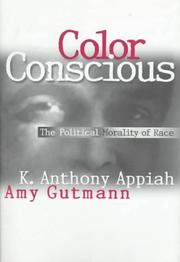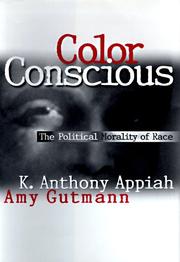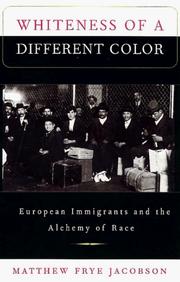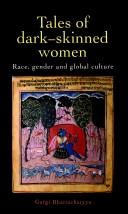| Listing 1 - 7 of 7 |
Sort by
|
Book
ISBN: 3851246683 9783851246681 Year: 1998 Volume: 93 Publisher: Innsbruck: Universität Innsbruck. Institut für Sprachwissenschaft,
Abstract | Keywords | Export | Availability | Bookmark
 Loading...
Loading...Choose an application
- Reference Manager
- EndNote
- RefWorks (Direct export to RefWorks)
Indo-European languages --- Indo-Europeans --- Congresses. --- Conferences - Meetings --- Aryans --- Civilization, Aryan --- Civilization, Indo-European --- Indo-Germanic peoples --- Caucasian race --- Ethnology --- Congresses --- Indo-European languages - Congresses --- Indo-Europeans - Congresses

ISBN: 3851246675 9783851246674 Year: 1998 Volume: 92 Publisher: Innsbruck: Universität Innsbruck. Institut für Sprachwissenschaft,
Abstract | Keywords | Export | Availability | Bookmark
 Loading...
Loading...Choose an application
- Reference Manager
- EndNote
- RefWorks (Direct export to RefWorks)
Indo-European philology. --- Indo-Europeans. --- Indo-European philology --- Indo-Europeans --- Aryans --- Civilization, Aryan --- Civilization, Indo-European --- Indo-Germanic peoples --- Caucasian race --- Ethnology --- Aryan philology

ISBN: 1400810833 1282753126 9786612753121 1400822092 9781400810833 9781400822096 9780691026619 0691026610 0691059098 9780691059099 1400800080 1400814944 9781282753129 6612753129 Year: 1998 Publisher: Princeton, NJ
Abstract | Keywords | Export | Availability | Bookmark
 Loading...
Loading...Choose an application
- Reference Manager
- EndNote
- RefWorks (Direct export to RefWorks)
In America today, the problem of achieving racial justice--whether through "color-blind" policies or through affirmative action--provokes more noisy name-calling than fruitful deliberation. In Color Conscious, K. Anthony Appiah and Amy Gutmann, two eminent moral and political philosophers, seek to clear the ground for a discussion of the place of race in politics and in our moral lives. Provocative and insightful, their essays tackle different aspects of the question of racial justice; together they provide a compelling response to our nation's most vexing problem. Appiah begins by establishing the problematic nature of the idea of race. He draws on the scholarly consensus that "race" has no legitimate biological basis, exploring the history of its invention as a social category and showing how the concept has been used to explain differences among groups of people by mistakenly attributing various "essences" to them. Appiah argues that, while people of color may still need to gather together, in the face of racism, under the banner of race, they need also to balance carefully the calls of race against the many other dimensions of individual identity; and he suggests, finally, what this might mean for our political life. Gutmann examines alternative political responses to racial injustice. She argues that American politics cannot be fair to all citizens by being color blind because American society is not color blind. Fairness, not color blindness, is a fundamental principle of justice. Whether policies should be color-conscious, class conscious, or both in particular situations, depends on an open-minded assessment of their fairness. Exploring timely issues of university admissions, corporate hiring, and political representation, Gutmann develops a moral perspective that supports a commitment to constitutional democracy. Appiah and Gutmann write candidly and carefully, presenting many-faceted interpretations of a host of controversial issues. Rather than supplying simple answers to complex questions, they offer to citizens of every color principled starting points for the ongoing national discussions about race.
Whites --- African Americans --- Racism --- Race awareness --- Negritude --- Race identity --- Race identity. --- Ethnic identity --- United States --- Race relations. --- Race question --- White persons --- Ethnology --- Caucasian race --- White people

ISBN: 0691059098 Year: 1998 Publisher: Princeton (N.J.) : Princeton university press,
Abstract | Keywords | Export | Availability | Bookmark
 Loading...
Loading...Choose an application
- Reference Manager
- EndNote
- RefWorks (Direct export to RefWorks)
Race awareness --- -Racism --- -Whites --- -African Americans --- Afro-Americans --- Black Americans --- Colored people (United States) --- Negroes --- Africans --- Ethnology --- Blacks --- White people --- White persons --- Caucasian race --- Bias, Racial --- Race bias --- Race prejudice --- Racial bias --- Prejudices --- Anti-racism --- Race relations --- Awareness --- Ethnopsychology --- Ethnic attitudes --- Race identity --- -Race identity --- United States --- Race relations. --- Race question --- Critical race theory --- Black people --- Whites
Book
ISBN: 2717835873 9782717835878 Year: 1998 Volume: 1 Publisher: Paris: Economica,
Abstract | Keywords | Export | Availability | Bookmark
 Loading...
Loading...Choose an application
- Reference Manager
- EndNote
- RefWorks (Direct export to RefWorks)
Greek literature --- History and criticism --- Greece --- Civilization --- -Indo-Europeans --- 880.9001 --- Aryans --- Civilization, Aryan --- Civilization, Indo-European --- Indo-Germanic peoples --- Caucasian race --- Ethnology --- Balkan literature --- Byzantine literature --- Classical literature --- Classical philology --- Greek philology --- Literature of Hellenic languages Classical Greek literature Hisory Ancient period to ca. 499 --- Civilization. --- Greek literature - History and criticism --- Greece - Civilization --- Indo-européen commun (langue) --- Linguistique comparée. --- Épopées grecques. --- Tragédie grecque. --- Mythologie indo-européenne. --- Civilisation mycénienne.

ISBN: 9780674951914 0674063716 0674951913 9780674063716 Year: 1998 Publisher: Cambridge, Mass. London Harvard University Press
Abstract | Keywords | Export | Availability | Bookmark
 Loading...
Loading...Choose an application
- Reference Manager
- EndNote
- RefWorks (Direct export to RefWorks)
"America's racial odyssey is the subject of this work of historical imagination. Matthew Frye Jacobson argues that race resides not in nature but in the contingencies of politics and culture. In ever-changing racial categories we glimpse the competing theories of history and collective destiny by which power has been organized and contested in the United States. Capturing the excitement of the new field of "whiteness studies" and linking it to traditional historical inquiry. Jacobson shows that in this nation of immigrants "race" has been at the core of civic assimilation: ethnic minorities in becoming American were reracialized to become Caucasian. He provides a counterhistory of how nationality groups such as the Irish or Greeks became Americans as racial groups like Celts or Mediterraneans became Caucasian." "Jacobson tracks race as a conception and perception, emphasizing the importance of knowing not only how we label one another but also how we see one another, and how that racialized vision has largely been transformed in this century."--Jacket
European Americans --- Race identity --- Whites --- United States --- Immigrants --- History --- Racism --- Race relations --- #SBIB:39A6 --- #SBIB:97G --- Ethnology --- Europeans --- Etniciteit / Migratiebeleid en -problemen --- Geschiedenis van Noord-Amerika --- Race relations. --- Race question --- White people --- White persons --- Caucasian race --- Américains d'origine européenne --- Einwanderer. --- Ethnische Identität. --- Europeanen. --- Geschichte. --- Immigranten. --- Immigrants. --- Race discrimination --- Race discrimination. --- Race. --- Racial Groups. --- Racism. --- Racisme --- Rassenfrage. --- Rassenvraagstuk. --- Wei�e. --- Identité ethnique. --- Race identity. --- Histoire --- USA. --- United States. --- Verenigde Staten. --- États-Unis --- Relations raciales.

ISBN: 185728612X 9781857286120 0203981359 9780203981351 9781135362485 1135362483 1857286111 9781857286113 1280112050 9781280112058 9786610112050 6610112053 1135362475 Year: 1998 Publisher: London, UK ; Bristol, Pa., USA : UCL Press,
Abstract | Keywords | Export | Availability | Bookmark
 Loading...
Loading...Choose an application
- Reference Manager
- EndNote
- RefWorks (Direct export to RefWorks)
Annotation
Women [Black ] --- Great Britain --- United States --- African Americans in popular culture --- Racism in popular culture --- Women authors --- Race relations. --- East and West. --- Women, Black. --- Minority women. --- Whites. --- Sex role. --- Culture. --- Cultural sociology --- Culture --- Sociology of culture --- Civilization --- Popular culture --- Gender role --- Sex (Psychology) --- Sex differences (Psychology) --- Social role --- Gender expression --- Sexism --- White people --- White persons --- Ethnology --- Caucasian race --- Women minorities --- Women --- Black women --- Women, Negro --- Civilization, Western --- Civilization, Oriental --- Occident and Orient --- Orient and Occident --- West and East --- Eastern question --- Integration, Racial --- Race problems --- Race question --- Relations, Race --- Social problems --- Sociology --- Ethnic relations --- Minorities --- Racism --- Social aspects --- Asian influences --- Oriental influences --- Western influences --- Whites --- White people. --- Gender roles --- Gendered role --- Gendered roles --- Role, Gender --- Role, Gendered --- Role, Sex --- Roles, Gender --- Roles, Gendered --- Roles, Sex --- Sex roles
| Listing 1 - 7 of 7 |
Sort by
|

 Search
Search Feedback
Feedback About UniCat
About UniCat  Help
Help News
News